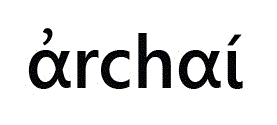Abstract:
The notion of linguistic correction (Latinitas) with which Augustine of Hippo introduced his Ars pro fratrum mediocritate breuiata seems central to the philosopher's grammatical discussion, not only because of the various examples that Augustine offers about the definitions of barbarism and soloecism at the end of this treatise, but also because the subject of correction (Latinitas) and, consequently, of the deviations of language (barbarismus and soloecismus), are also presented in other non-grammatical works: The confessions, De ordine and De doctrina Christiana. In this article, we propose to evaluate the conceptual outlines of the notions of barbarism and solecism in the work of Augustine, considering, on the one hand, the definitions present in the Ars breuiata, and, on the other, the way in which Augustine also presents them in his philosophical work. We propose that the normative orientation contained in the text of ars must be relativised by ethical questions that arise from the comments present in the Confessions, the De ordine and the De doctrina Christiana.
Keywords:
Linguistic correction (Latinitas); barbarism; solecism
